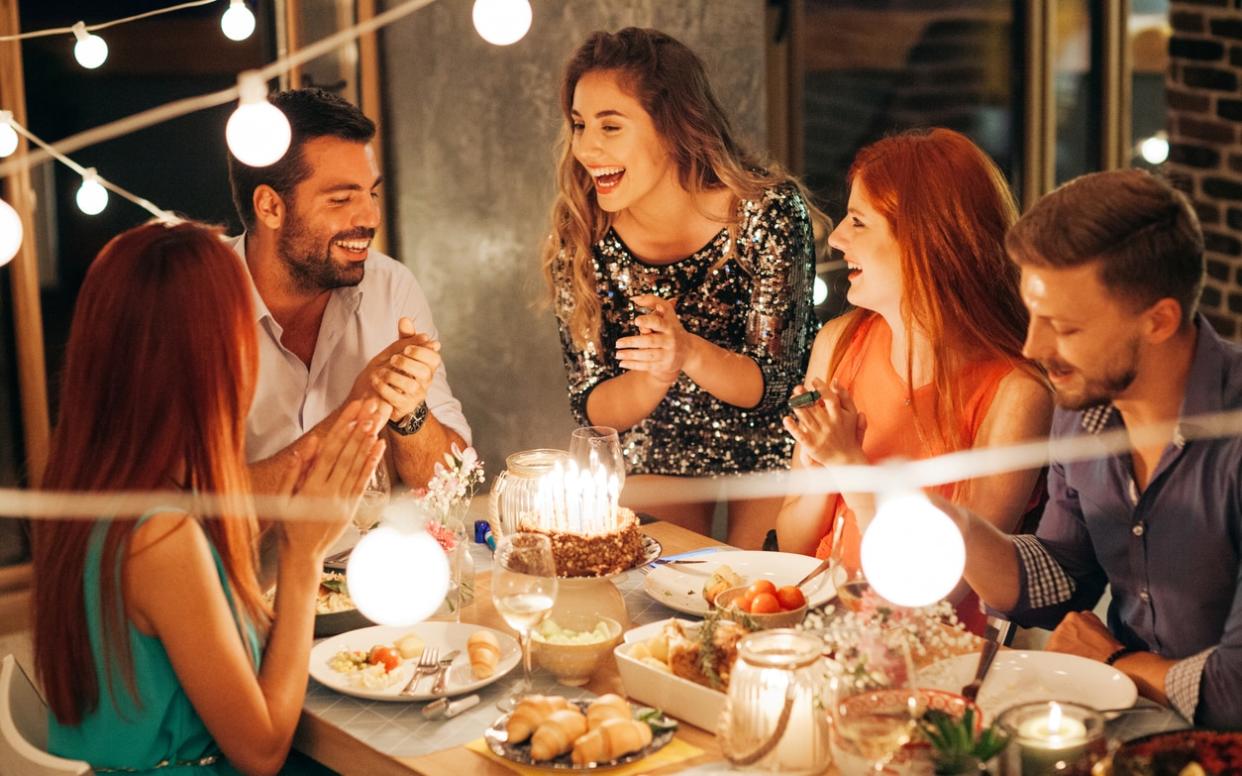Long live the rule of six – that's always been my dinner party limit

With everything from social gatherings to group holidays, any more than six members tends to throw off the dynamic
A couple of summers ago, entirely of my own accord, I banned myself from attending dinner parties with more than six guests. It felt imperative to protect myself from the serious health repercussions of a tiresome Thursday evening, and it seemed irresponsible to infect other healthy diners with my highly contagious case of disaffection.
Let’s face it, when you stick eight people on a table, the likelihood of enjoyment dwindles dramatically. With a wider circle, the probability is higher that you’ll be sitting next to someone you don’t know or want to know. Worse still, with eight or more sparring voices to contend with, these tedious neighbours are the only people you can actually communicate with.
On an inauspicious table, this is akin to being squashed into middle seat E on an economy flight, forced to tuck in your elbows and mumble awkward sentences at strangers on either side.
At a table with more than six diners, the conversation inevitably breaks up, and one end of the table can have an entirely different evening from the other end. Six, the current maximum for a social gathering outdoors or in someone’s home, is any sane person’s maximum too, testing the very boundaries of our misanthropy.
Five is an even better total; odd numbers pleasingly disrupt the tired old idea that every diner, reveller or traveller is one half of a neatly parcelled-up couple. Four is fab, although a little tense if it’s two couples grilling each other. Three is terrific because it shakes up the dynamic and everyone gets their say.
Two is an acceptable number at a dinner table, but you are starkly confronted with your life choices, be they wise or unwise, temporary or depressingly permanent. A dinner party for one, meanwhile, is always spectacular.
When we travel, a sextet is similarly boundary testing, on the outside limits of acceptability. With all those legs, the group moves at the speed of a centipede, and the turgid conglomerate makes precious little progress through street markets, museums, festival crowds and ancient ruins. Somebody always needs the loo and somebody is always in the queue for something.
However, a holiday party of six does permit you to peel off alone or as a duo. And you can almost always find someone to join you, whatever you feel like doing, be it the cartography museum or wandering around an Italian supermarket enthralled by the novel packaging. So once again, six is a magic number.
The Algonquin Round Table, that regular gathering of relentlessly witty New Yorkers during the 1920s, had 11 seats, populated by the likes of Dorothy Parker, George S Kaufman, Noël Coward and Irving Berlin. This sounds truly hellish; no wonder Harpo Marx, the nicest of the bunch, was only a semi-regular attendee.
Our very own Bloomsbury set, meanwhile, had 10 core members, including E M Forster, Virginia Woolf, Clive and Vanessa Bell, and John Maynard Keynes, who would all decamp to country retreats like Charleston and Lewes for tennis and adultery. Sure, they’re all famous, but none of them are famous for being happy. Larger gatherings, at dinner parties or country houses, are for historic show-offs, I’m afraid, hosted by bourgeoisie egotists, and attended by aggressive wannabe raconteurs and social climbers.
Golly, just the act of writing about these verbal sparring matches and intellectual bun fights is making me vicious and bullish. See? I warned you.
But now it’s just you and me again, I can admit that, of course, I’m excited for the days when the rule of six is relaxed; when we can have weddings, festivals and house parties again. When families don’t have to choose between which grandparent to see, when friendships aren’t tested, scrutinised and quantified, and when we never have to say the words “support bubble” again.
But the pandemic, and the restrictions we’ve all accepted to a remarkable degree, does amount to a large-scale social experiment into group dynamics.
I’m learning valuable lessons now, about intimacy, connection, boredom, chemistry and echo chambers, that I’ll be putting into practice on my travels in future years.
In terms of travel and leisure, we’ve lost a lot this year. But we’ve regained intimacy.
To read more articles by Anna Hart, see telegraph.co.uk/travel/team/anna-hart


